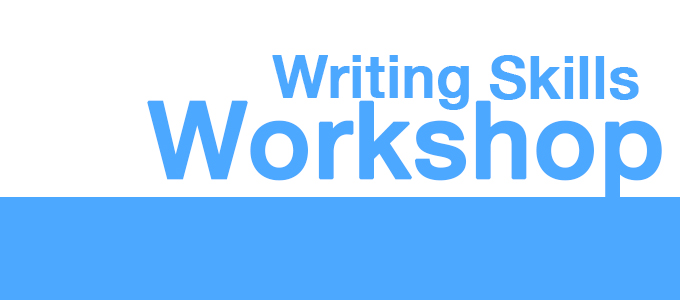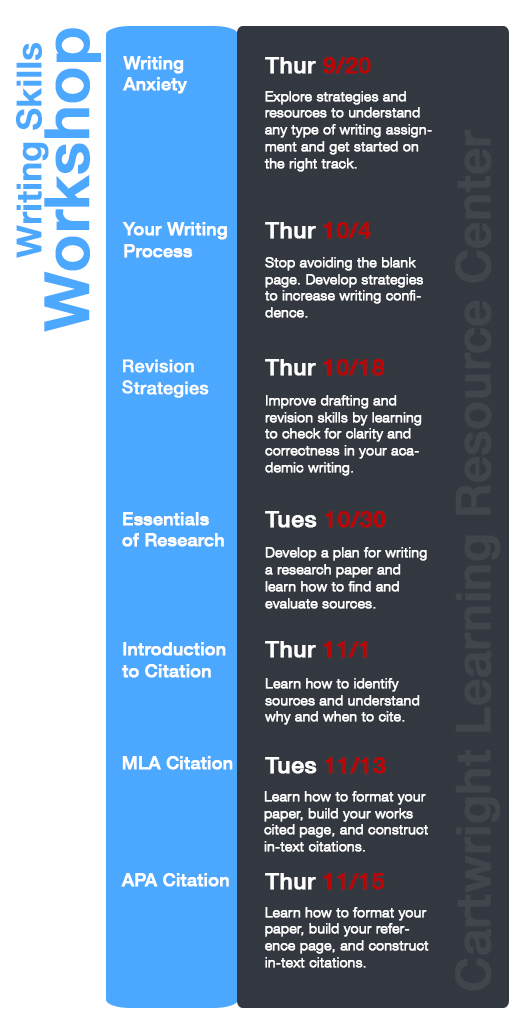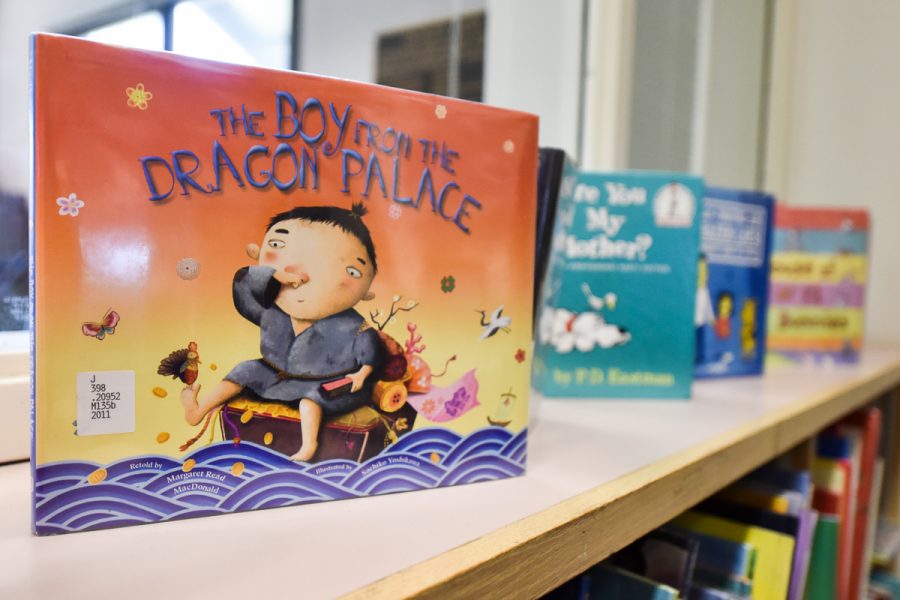For those of us who struggle with writing assignments, the Cartwright Learning Resources Center offers tips on understanding what professors expect from their students.
The CLRC is offering a writing skills workshop every two weeks on Thursdays, starting September 6. The first one took place in lab 2 from 1 to 2 pm, focusing on strategies and resources to approach writing assignments.
Approximately thirty students participated in the workshop led by Michelle Detorie, a lab teaching assistant for the Writing Center.
“I feel that I got important information,” workshop participant Norman Krohm said. “I’m in the midst of writing a paper now so using the website to look at specific questions and to approach my paper is going to help me.”
The workshop aims to help students practice writing strategies, understand assignment elements, and identify the type of writing and thinking required.
Participants, mostly freshmen, openly exchanged ideas and experiences throughout the workshop.
“Well, my friends are teachers,” Detorie said. “They wear, during the first couple weeks of school, a T-shirt that says ‘It’s on the syllabus.’
To understand assignments better, one must question the purpose of the assignment, who the audience is, and what the finished product should look like, Detorie recommended.
“Looking at the type of tone and language of the assignment is often a key,” she said. “Your writing should match the [assignment’s] tone.”
During the workshop, Detorie gave assignments and guidelines to practice ‘reading professors’ minds.’ Rereading an assignment many times may tell you what skills, abilities and knowledge your professor is looking for, Detorie said. She also recommended using technical terms and academic language.
Detorie emphasized the most important tip for any struggling student is simply to ask the teacher.
“Analyzing the assignment is going to be useful so that you know what questions to ask,” Detorie added. “Because it may not even occur to you to ask that question until you spend time actually trying to think about the assignment.”
Last but not least, refer to your notes, grading rubric, class discipline and syllabus, Detorie advised.
“When I first read this assignment, I thought ‘I have no earthly idea what this person is looking for,’ and if I didn’t have these sort of questions to help me think through it. I don’t know if I would have figured it out on my own.”
The more Detorie and students reread the assignment, the better they understood it.
At the end, students were given handouts to work on at home so they could continue to apply skills learned at the workshop on future assignments.











